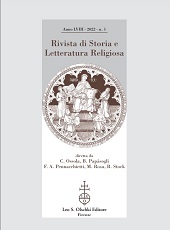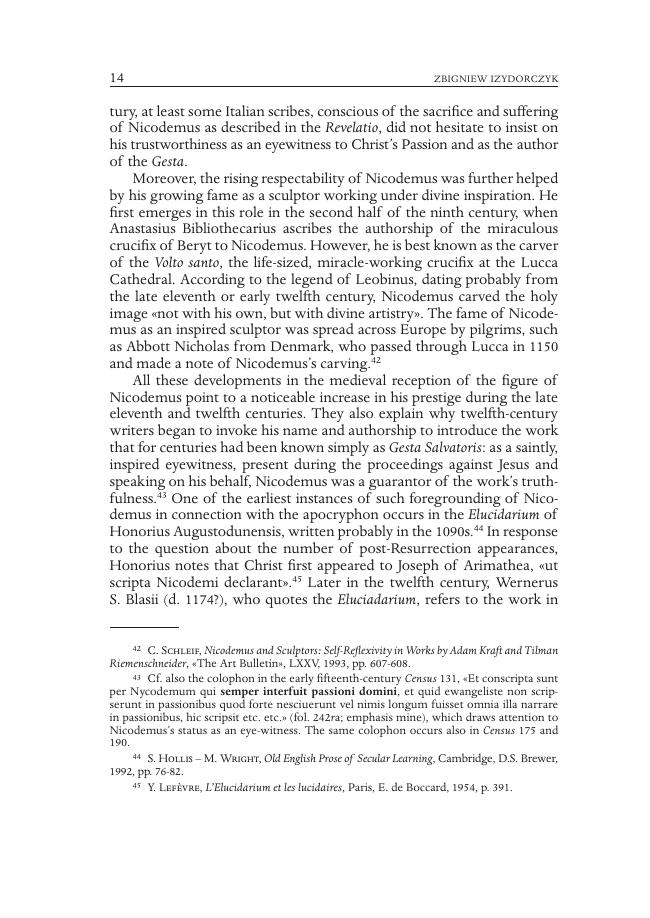Nicodemus the (pseudo-)evangelist : from the Acts of Pilate to the Gospel of Nicodemus
P. 3-26
The apocryphal work known today as the Gospel of Nicodemus, or Evangelium Nicodemi, is an expanded translation of the Greek Acts of Pilate. In the Latin West before the twelfth century, it was usually referred to as Gesta Salvatoris. During that early period, the term gospel, or evangelium, was never applied to the work, and Nicodemus was never given titular prominence, even though he is mentioned in the prologue to the work. Nicodemus's gradual emergence in the titles recorded in manuscripts was probably a result of his growing appreciation in the religious culture of the eleventh and twelfth centuries.
The earliest known example of the title Evangelium Nicodemi occurs in a list of books left by bishop Hugh Puiset to the Durham Cathedral upon his death in 1195. The title was popularized in the course of the thirteenth century on the Continent by Dominican preachers, such as Vincent of Beauvais and Jacobus de Voragine. By the end of the Middle Ages, Evangelium Nicodemi had become the dominant, although not the exclusive, title for the apocryphon; it became the standard and uncontested designation after it was adopted by publishers and scholars in the age of print. [Publisher's text]
-
Artikel aus derselben Ausgabe (einzeln erhältlich)
-
-
Informationen
DOI: 10.1400/288386
ISSN: 2035-7583



